15+ High Converting Pricing Table Design Examples for Any Website
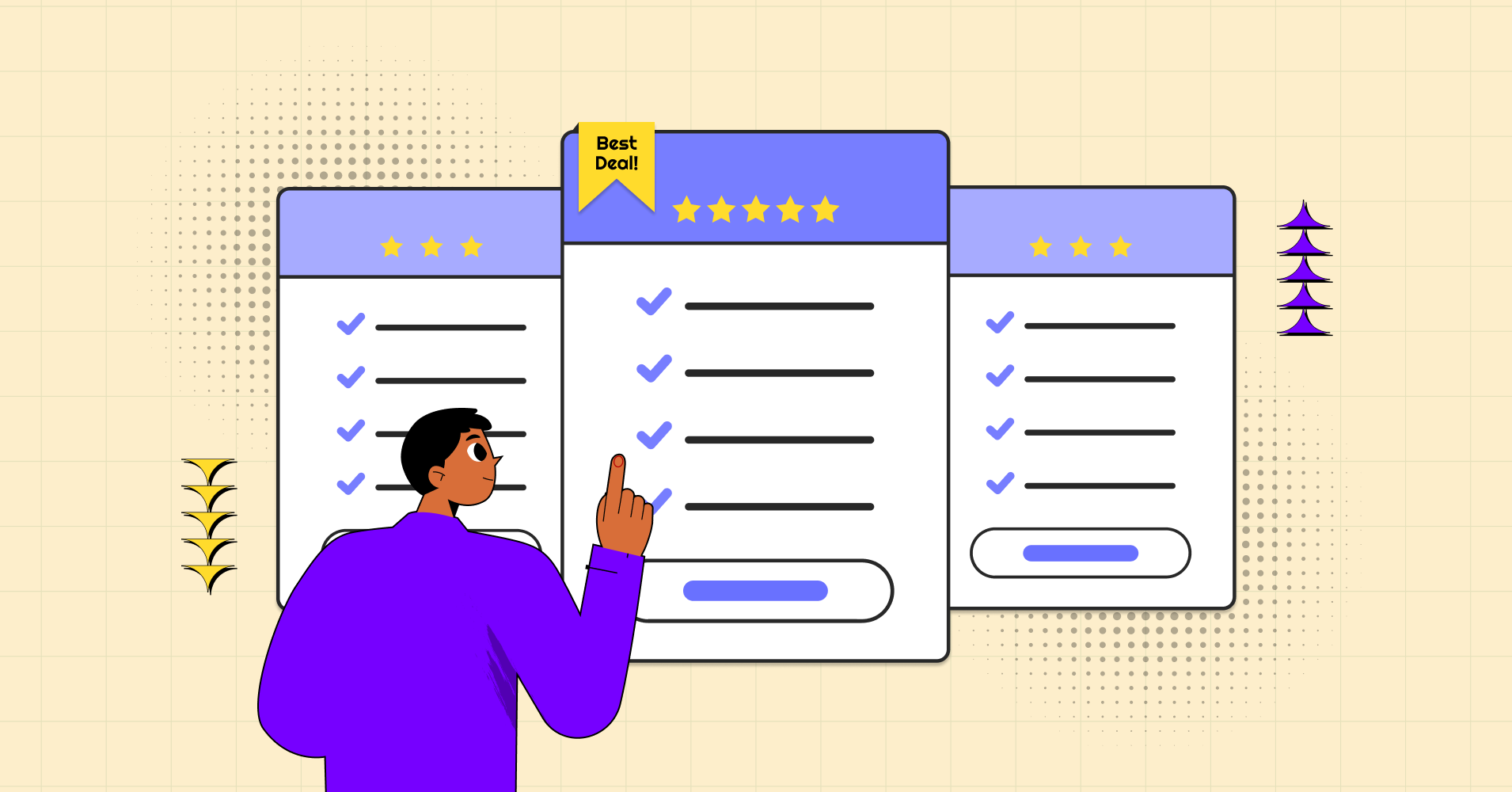
You know that feeling when you land on a pricing page and… nothing makes sense? Three, five, seven plans- features listed in some mysterious order, only the product manager gets. Prices hiding behind “Contact Us” buttons like classified intel.
Meanwhile, you’re stuck decoding whether “Advanced” actually means anything different from “Premium.” Is it just a fancy adjective? Or has something to offer?
Here’s the irony: teams spend months perfecting their product, then throw together pricing pages like last-minute homework. The result? Confused visitors, abandoned carts, and lost revenue.
So, what if your pricing table actually helped people choose? Wild idea, right?
In this guide, you’ll find 15+ pricing table design examples that make sense, sell better, and stop people from rage-quitting your site. Real designs, real takeaways, plus examples built with Ninja Tables.
Your Pricing Table Ui Might Be Costing You Thousands
Someone lands on your pricing page, ready to buy. Three seconds later… they’re gone.
Your feature page or product tables might’ve been the nudge to get them here. Job done, right? (Buzzer!) Wrong.
From the moment they hit the pricing table, confusion takes over. What’s included where? Which plan charges annually? Who gets 24/7 support? What’s in the “super deal” or the agency license? The questions pile up high like Kilimanjaro.
This happens all over the internet- not because your prices are too high, but because your pricing table makes their brain hurt.
Cognitive load (fancy term for “mental effort required to figure stuff out”) is the silent killer of conversions. When people have to work too hard to understand your options, they bail.
So, what makes a pricing table easy to understand? It’s not about cramming every feature into a grid- it’s about answering one key question faster than someone can think, “I’ll come back later” (spoiler: they won’t).
Single Site License | Agency License | Unlimited License |
79$/year (1 Domain) | Popular 129$/year (20 Domain) | 299$/year (Unlimited Domain) |
1 Year Plugin Update | 1 Year Plugin Update | 1 Year Plugin Update |
1 Year Priority Support | 1 Year Priority Support | 1 Year Priority Support |
All Features Included | All Features Included | All Features Included |
Single Site License | Agency License | Unlimited License |
309$/year (1 Domain) | Popular 499$/year (20 Domain) | 749$/year (Unlimited Domain) |
1 Year Plugin Update | 1 Year Plugin Update | 1 Year Plugin Update |
1 Year Priority Support | 1 Year Priority Support | 1 Year Priority Support |
All Features Included | All Features Included | All Features Included |
That question? “Which plan is right for me?”
Here’s what separates tables that convert from tables that confuse:
Clarity beats completeness every time. Listing 50 features sounds thorough, but it paralyzes decision-making. The best tables spotlight differentiators- the specific stuff that actually matters when comparing plans.
Visual hierarchy guides the eye. Strategic use of size, color, and spacing tells visitors where to look first. (Spoiler: your most profitable plan shouldn’t be hiding in the corner like it’s embarrassed.)
Psychological pricing strategy. A $99/month plan feels reasonable next to a $199/month option, but expensive next to a $29/month one. Same price, totally different feeling.
Friction kills conversions. Every extra click between “I want this” and “I bought this” increases the chance that someone will abandon their purchase. The best tables place CTAs (calls-to-action, not medical scans) right where decisions are made…
Create High-Converting Pricing Tables with Ninja Tables
So you’ve seen gorgeous pricing tables on other sites. Cool.
Now comes the fun part: actually building one without spending your entire weekend wrestling with CSS.
(Because let’s be honest- if you wanted to write code all day, you probably wouldn’t be reading this guide.)
Ninja Tables is a powerful WordPress table builder that goes far beyond static data display. It also works great as a pricing table WordPress plugin, letting you design and manage pricing layouts seamlessly within your site.
Why does it excel for pricing tables specifically? It handles all the annoying stuff automatically:
- Responsive design that looks gorgeous on phones without you manually coding breakpoints
- Sortable columns for easy feature comparison (visitors love this)
- Built-in styling options that don’t look like they time-traveled from 2010
- WooCommerce integration if you’re selling directly through WordPress
The real advantage shows up during updates. When you need to change a price or add a feature across multiple tables, you do it once in a central interface. Beats hunting through twenty pages of hard-coded HTML any day of the week.
Here’s a productivity hack that’ll save you hours: build your first pricing table template with all your brand colors and styling. Then duplicate it for different pages. Instant consistency across your site (which builds trust), plus you’ll save 80% of setup time on future tables.
Regular pricing table format
PRO | Top! PLUS | BUSINESS |
4.99$/month with 4 days free trail | 9.99$/month with 4 days free trail | 19.99$/month with 4 days free trail |
1 GB Disk Space | 1 GB Disk Space | 1 GB Disk Space |
500 MB Bandwidth | 2 GB Bandwidth | 5 GB Bandwidth |
1 Sub Domain | 3 Sub Domain | 10 Sub Domain |
1 Email Account | 5 Email Account | 10 Email Account |
SMTP | SMTP | SMTP |
Monthly Traffic: 1000 GB | Monthly Traffic: 2000 GB | Monthly Traffic: 3000 GB |
Network Port: 50 Mbps | Network Port: 75 Mbps | Network Port: 100 Mbps |
Horizontal pricing table format with discount
 Pricing: Product X
Pricing: Product XReleased: July 2025
Seller: ElectroMag
| Plan | Monthly | Annually | You save | USP | Action |
|---|---|---|---|---|---|
Agency | $159 | $1590 | 10% | 24/7 support | Buy |
Professional | $79 | $790 | 20% | AI infusion | Buy |
Starter | $29 | $290 | 17% | Drag-and-drop | Buy |
Plan comparison table
Features | Ninja Tables | Otter Blocks | Essential Addons | Easy Pricing Tables | Responsive Pricing Table Plugin | WP Table Builder |
Drag-and-Drop | ||||||
Import/Export | ||||||
Design Styles | ||||||
Responsiveness | ||||||
Conditions | ||||||
Integration with Page Builders | (Elementor) | |||||
Sort/Filter | ||||||
Google Sheets | ||||||
Version | Freemium | Freemium | Freemium | Free | Free | Freemium |
Customized styled pricing table
Popular STANDARD For Small Business | FREE For Regular Business | DELUXE For Large Business |
$59/ month | $00/ month | $99/ month |
Unlimited Pages | Unlimited Pages | Unlimited Pages |
All Templates & Blocks | All Templates & Blocks | All Templates & Blocks |
Contact & Subscribe Forms | Contact & Subscribe Forms | Contact & Subscribe Forms |
Free SSL/TLS Certificate | Free SSL/TLS Certificate | Free SSL/TLS Certificate |
Remove Branding | Remove Branding | Remove Branding |
Custom Form | Custom Form | Custom Form |
Payment Integration | Payment Integration | Payment Integration |
Export HTML/CSS/JS | Export HTML/CSS/JS | Export HTML/CSS/JS |
Feature-focused pricing table
FREE For Small Business | POPULAR STANDARD For Regular Business | DELUXE For Large Business |
$00/ month | $59/ month | $199/ month |
Unlimited Pages | Unlimited Pages | Unlimited Pages |
All Templates & Blocks | All Templates & Blocks | All Templates & Blocks |
Contact & Subscribe Forms | Contact & Subscribe Forms | Contact & Subscribe Forms |
Remove Branding | Remove Branding | Remove Branding |
Custom Form | Custom Form | Custom Form |
Payment Integration | Payment Integration | Payment Integration |
Comparative pricing table
Form Plugin | Basic | Pro | Elite |
$109/ Per year | $169/ Per year | $369/ Per year | |
$79/ Per year | $129/ Per year | $299/ Per year | |
$49/ Per year | $79/ Per year | $399/ Per year |
Bundle discount table
| Product Bundle | Individual Price Total | Bundle Price | You Save | Visit |
|---|---|---|---|---|
| Laptop + Mouse | $1,050 | $950 | $100 | Details... |
| Laptop + Mouse + Keyboard | $1,200 | $1,000 | $200 | Details... |
| Laptop + Mouse + Keyboard + Monitor | $1,800 | $1,100 | $700 (!!!) | Details... |
| Laptop + Full Office Setup (All 4) | $2,200 | $1,200 | $1000 ⭐ | Details... |
| Laptop + Chair + Desk | $1,800 | $1,400 | $400 | Details... |
| Ultimate Productivity Pack (All) | $2,500 | $1,600 | $900 🔥 Best Value! | Details... |
Deal pricing table with discount codes
| Product | Regular | Sale | Discount | Expires | Code | Get Deal |
|---|---|---|---|---|---|---|
| PageBoosterX | $59 | $35 🔥 | 40% Off | Dec 31 | HOLIDAY40 | Claim Deal → |
| ThemeCraft Pro | $59 | $47 | 20% Off | Limited | Auto-applied | Get Discount → |
| BuilderNova | $49 | $39 | 20% Off | Black Friday | SAVE20 | Save Now → |
| SpeedJet Core | $69 | $49 | 29% Off | July 31 | FAST29 | Activate Deal → |
| DesignWave Elite | $79 | $55 🔥 | 30% Off | Summer Sale | WAVE30 | Grab Offer → |
Seasonal themed pricing table
| Product | On Sale | Pricing | Discounted Price | Best for | Site |
|---|---|---|---|---|---|
| $79/month | $47 | Content creators | Visit | ||
Halloween Product X | $129/month | $77 | Marketers | Visit | |
| $379/month | Small Business | Visit | |||
| Free–$299/month | Free-$200 | Small Business | Visit | ||
| $299/month | $179 | E-commerce | Visit |
Time-sensitive discount pricing table
| Offer | Discount | Price | Coupon | Duration | Product |
|---|---|---|---|---|---|
| Flash Sale (24 hrs) | 30% Off | FLASH30 | Sep 20 - Sep 21 | See Product | |
| BFCM Hot Sale | 60% Off (!!!) | BFCM60 | TBD | See Product | |
| Best Deal | 30% Off | BD30 | TBD | See Product | |
| Weekend Deal | 20% Off | $40 | WKND20 | - | See Product |
| Regular Price | – | - | Oct 1 - TBD | See Product |
Because seriously, life’s too short to manually format tables.
The Psychology Behind Why Some Pricing Tables Just Work
Ever wonder why certain pricing layouts make you want to buy immediately, while others send you running for the hills?
It’s not random. It’s pure behavioral psychology at work.
Decision fatigue is legit. Every choice drains mental energy. Present too many options or too much information, and potential customers just… leave. The magic number for pricing tiers? Three to four plans. Go beyond that, and conversion rates typically nosedive.
(There’s a reason why Netflix doesn’t offer 12 different subscription levels. Well, there are many reasons, but you get the point.)
The decoy effect is sneaky but brilliant. Ever notice how the middle option usually has a “Most Popular” badge? That’s not random decoration. Presenting a high-priced option makes mid-tier pricing seem more reasonable- even if most people never seriously consider the premium plan.
It’s like when you go to a restaurant and see a $50 steak. Suddenly, that $28 pasta doesn’t seem so pricey, does it?
Learn how to create pricing table easily without coding.
Pricing Table Best Practices That Actually Matter
Essential Elements Every Pricing Table Needs- What should actually go in your pricing table? Not everything, that’s for sure.
Let’s cut through the generic advice and focus on what moves the needle.
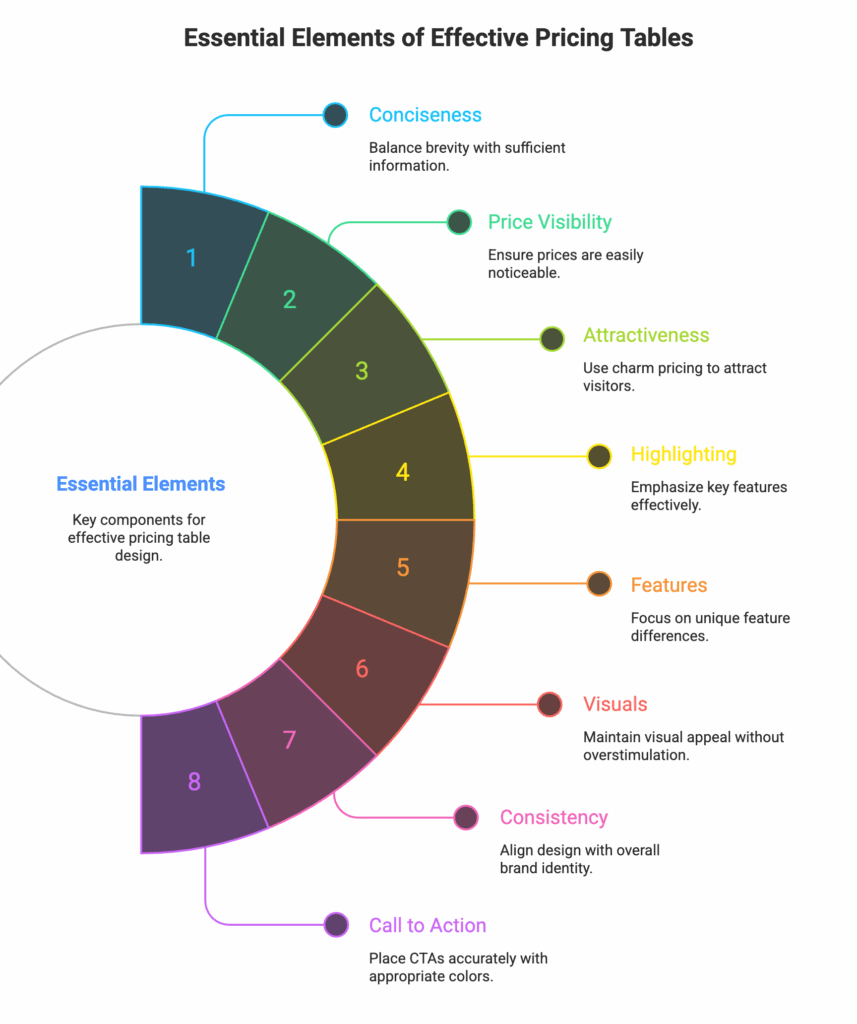
Read this complete guide to see what matters the most, and how it brings the most significant improvement in sales.
Best Pricing Table Examples
Here’s the good stuff: pricing examples with takeaways you can use instantly. Perfect as pricing page design inspiration for your own website.
Streaming package plan
Netflix’s pricing package plan is one of the most straightforward ones among streaming services available worldwide. It’s a great example of pricing model done right—simple, transparent, and easy to compare across tiers. This clarity in its pricing page design helps users instantly identify which plan best fits their needs without confusion.
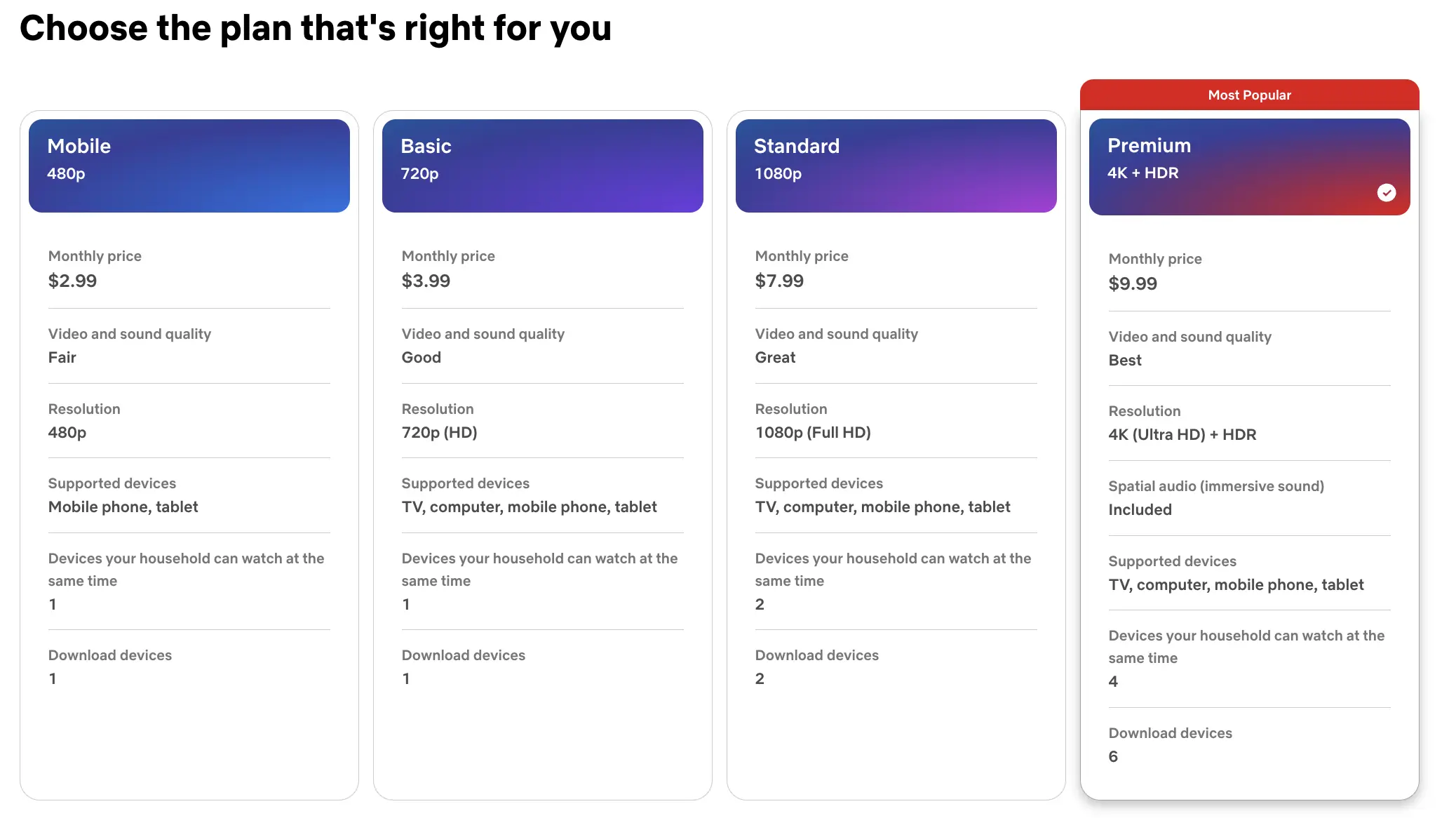
SaaS Pricing Tables Examples
Slack nails progressive disclosure- notice how they emphasize per-user pricing clearly, eliminating surprise costs at checkout.
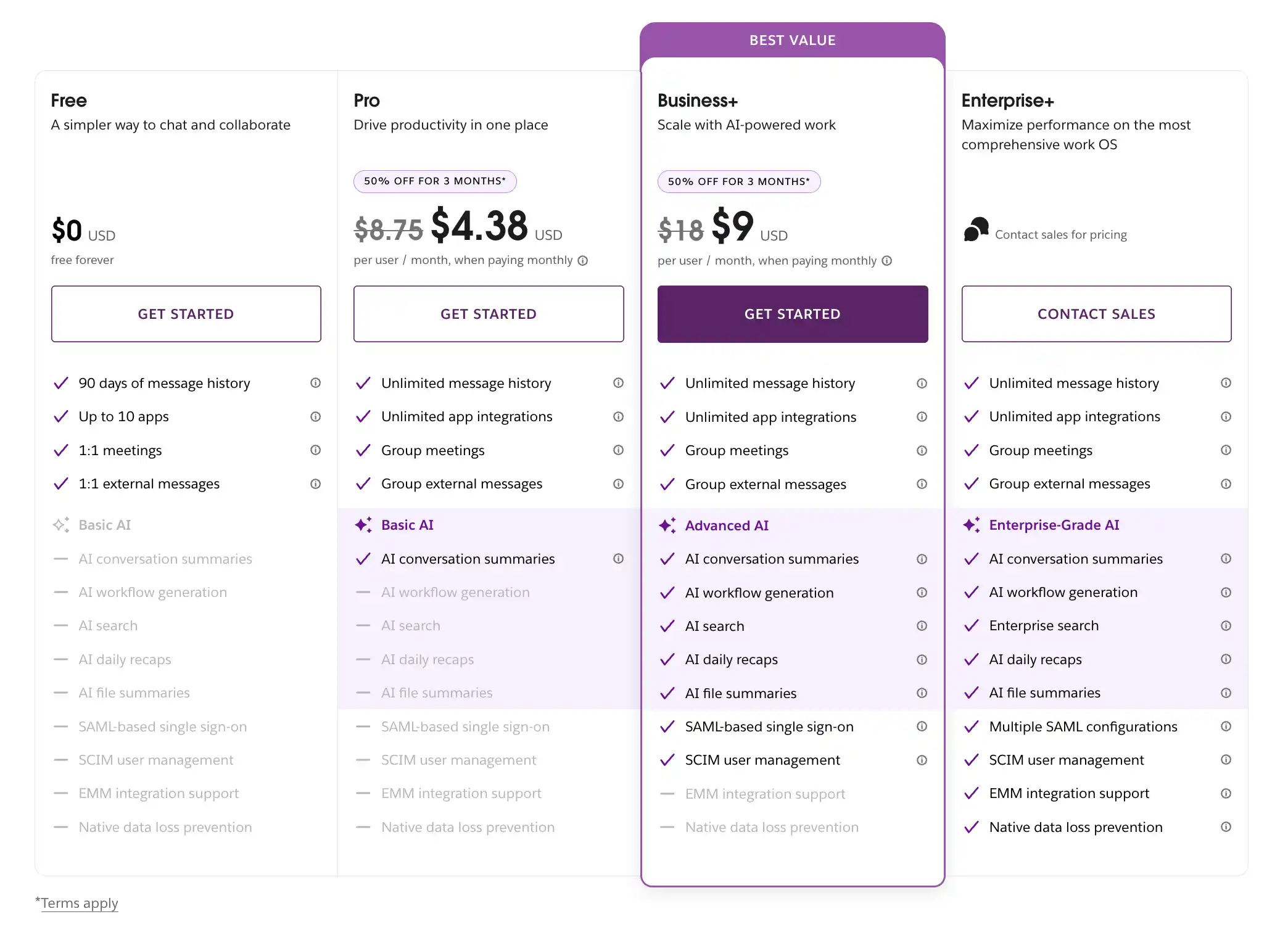
They show essential info first, with a comparison feature, and plan sections for details.
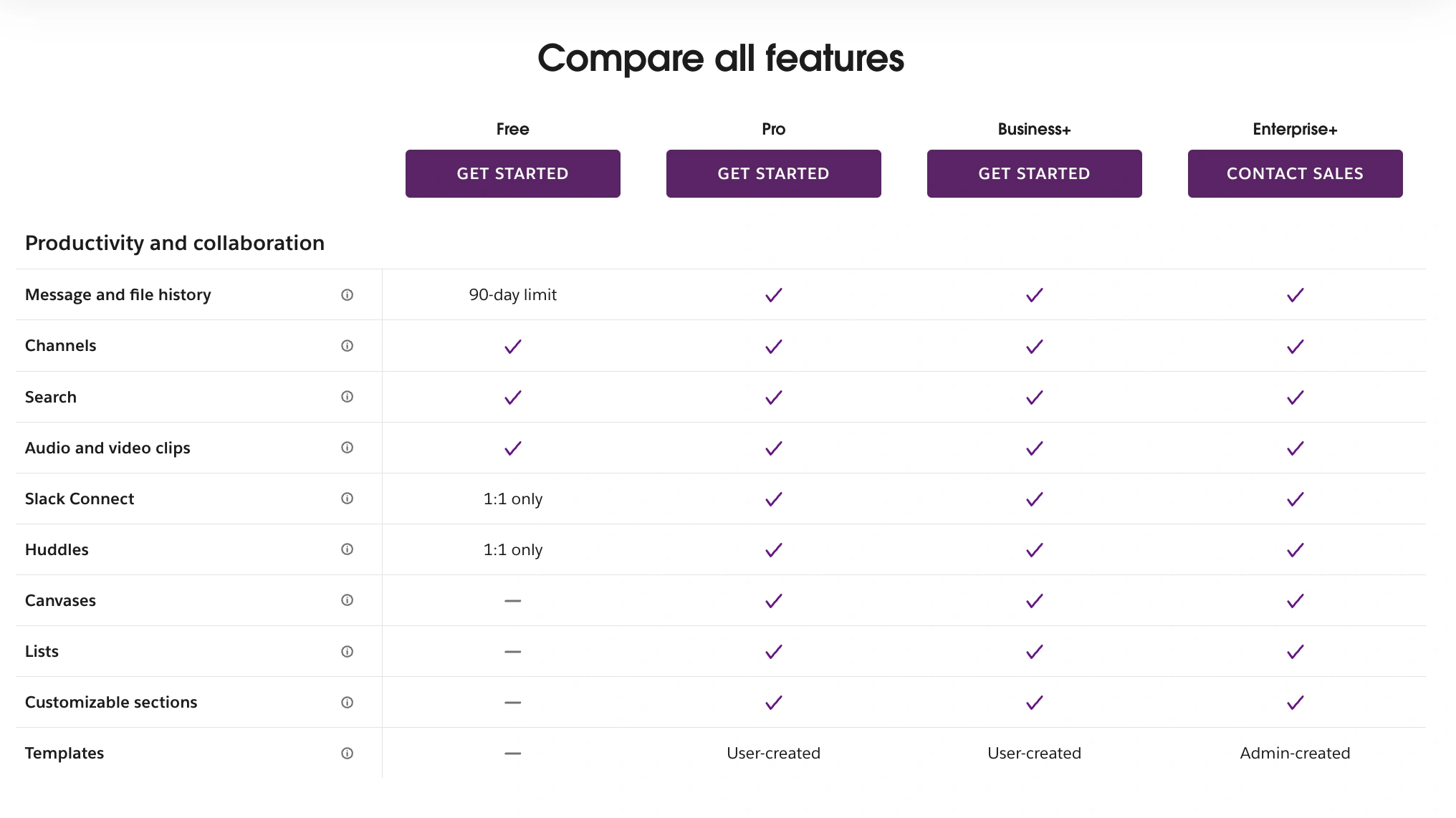
Mix pricing package
An ideal example for this is Mixpanel’s pricing page. It mainly works for monthly tracked users (MTU). The plan includes a calculator that shows exactly what your usage would cost- no estimation or guesswork. It’s a smart pricing page design example that perfectly combines transparency with functionality, giving users full control over their pricing model before committing.
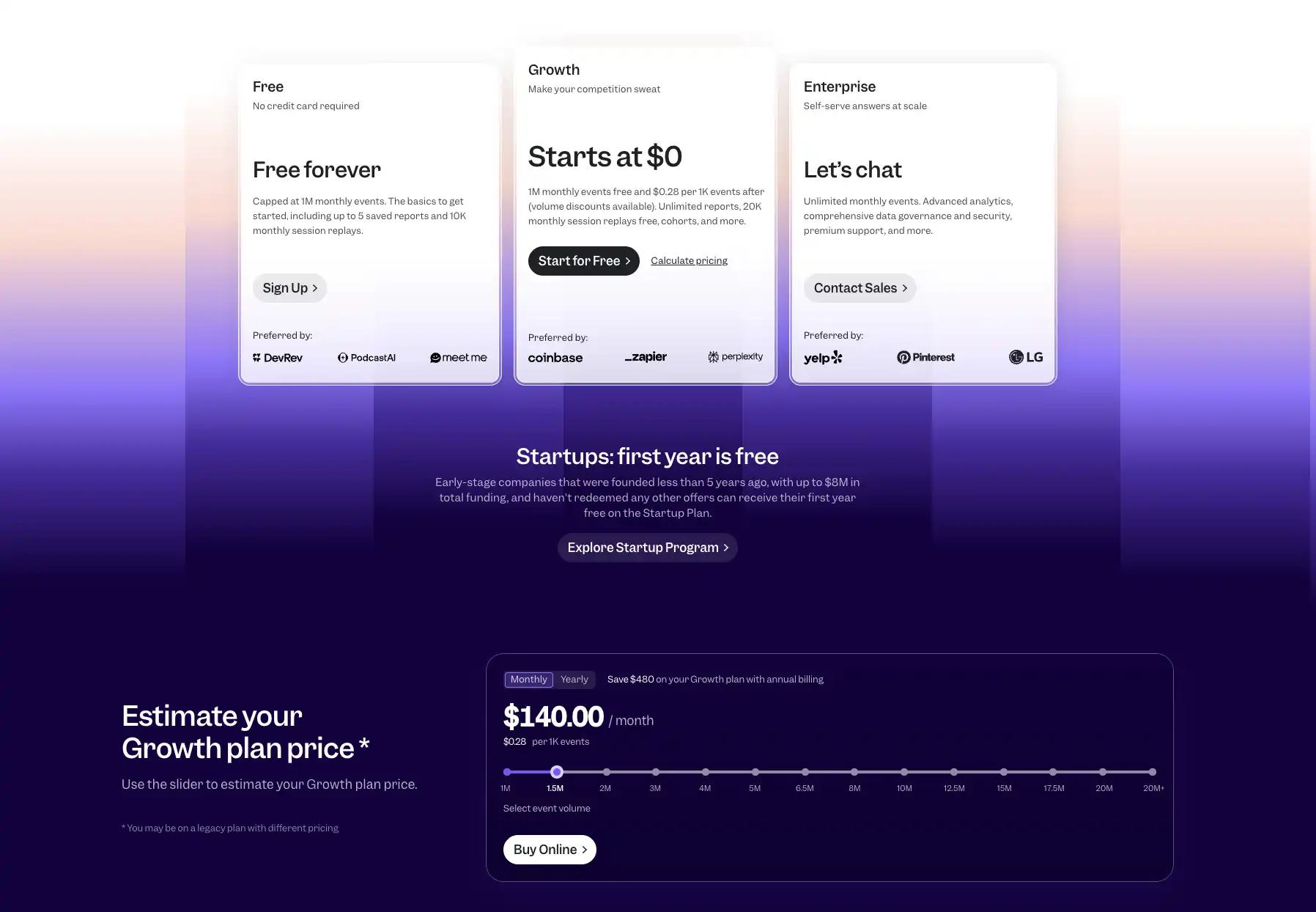
They’ve also outlined the features included in each pricing tier using intuitive icons like ticks and crosses, making it easy to scan and compare. It’s a great price comparison table example that balances clarity with usability.

SEMrush’s Toolset Bundles
An extensive tool suite structured into clear plans, highlighting “number of projects” and “keywords to track” as core differentiators. It’s a smart pricing table layout that clearly distinguishes plan value and guides users toward the best-fit option without confusion. This is a great plan comparison table ui design to get inspiration from.
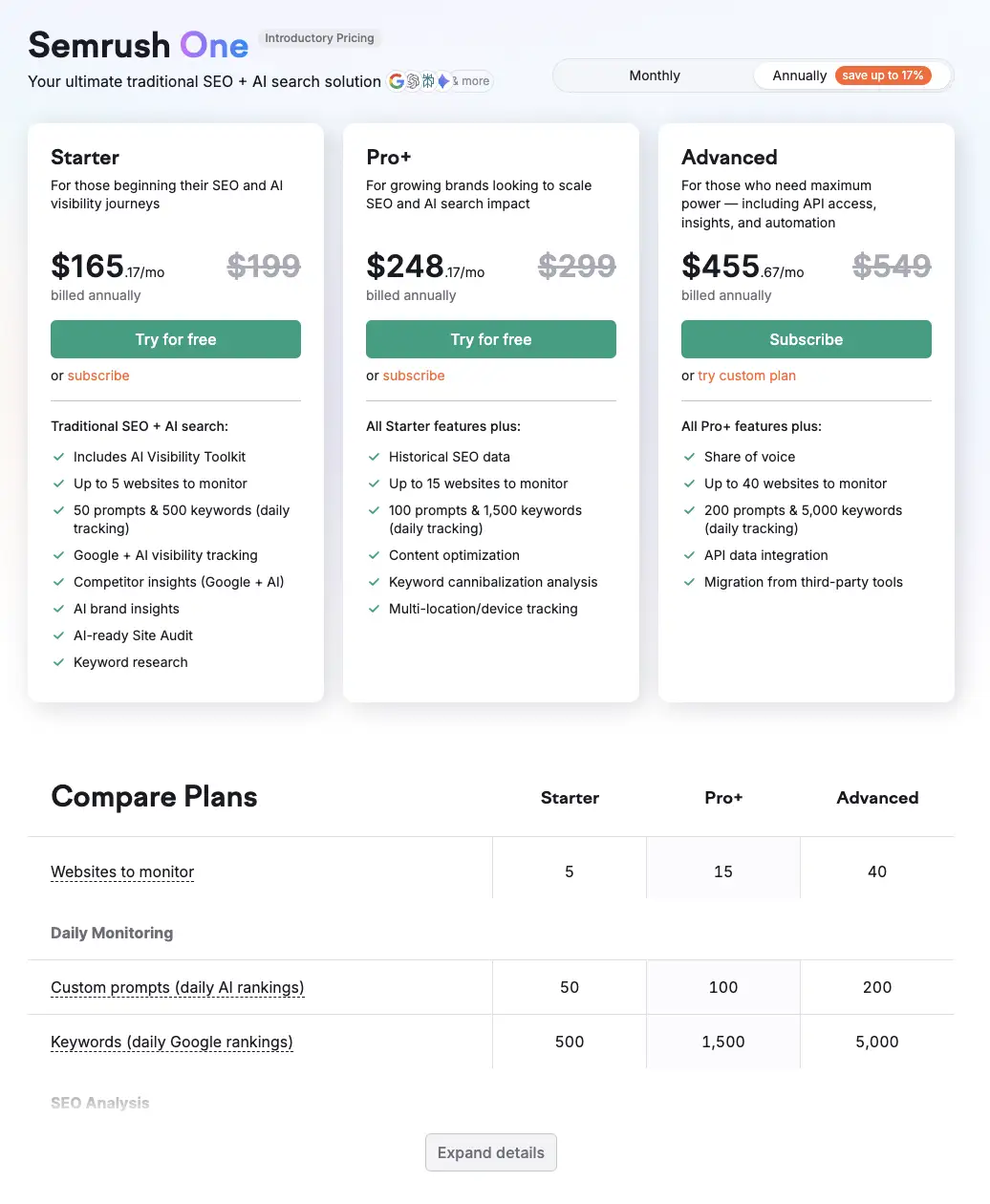
Once visitors check the prices, they naturally want to see what each tier offers next. The features are listed right below the pricing section, and users can click “Expand details” for a more in-depth view. The best part is the sticky price headers- as users scroll, the prices remain visible, helping them easily compare plans and stay oriented throughout the page.
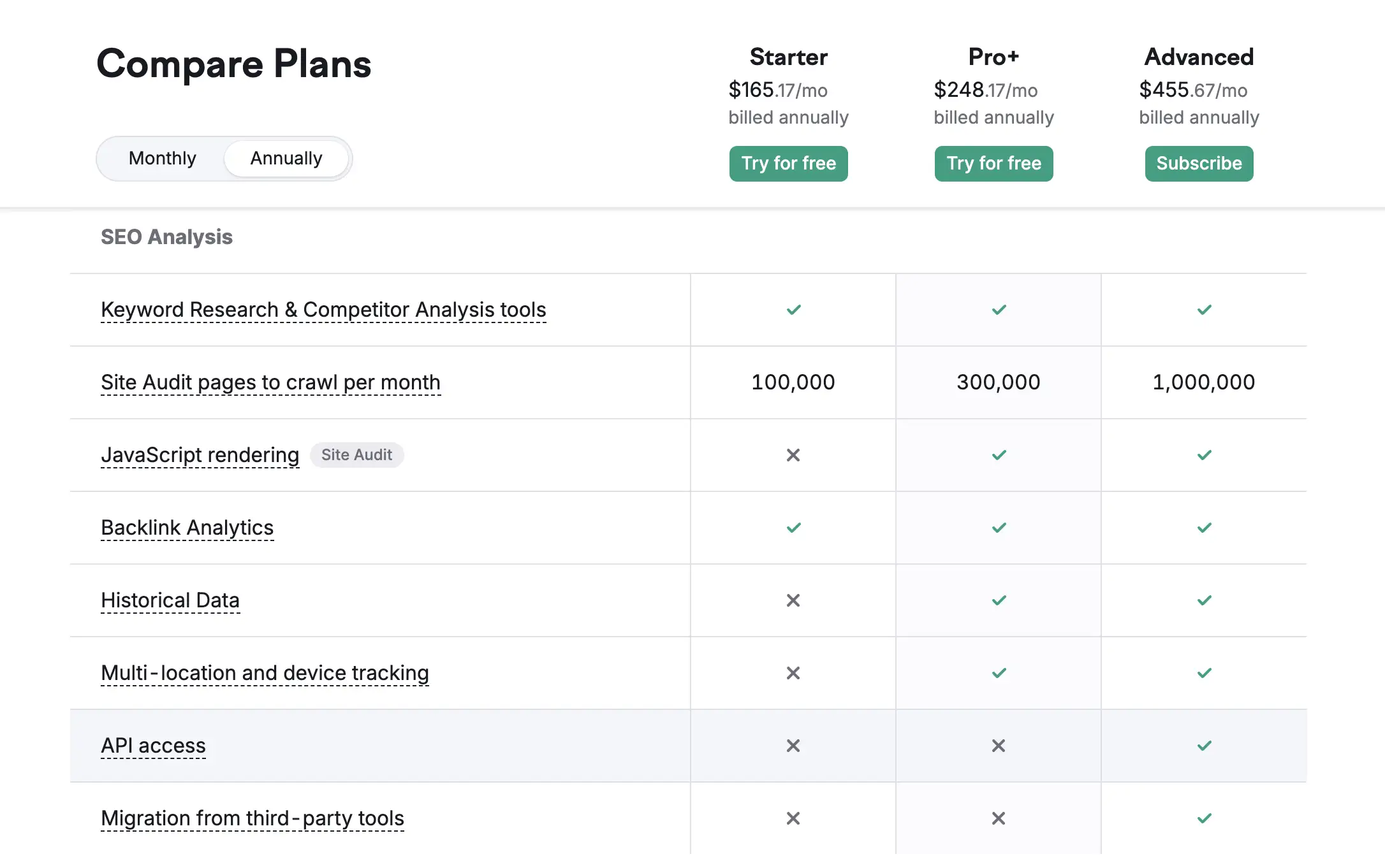
Common Pricing Table Mistakes (And How to Fix Them)
Even experienced designers and marketers screw this up. Here are the biggest traps. The pricing page mistakes that cost you sales are listed below, with the fixes that might save you all the time.
Overcrowding with Too Much Information
When you list 40+ features across five plan tiers, nobody wins. Visitors can’t process that much data, and you’ve wasted design space on features that don’t differentiate plans.
The fix: Limit visible features to 8-12 key differentiators. Put everything else behind an “See all features” expandable section or comparison page link.
Inconsistent or Confusing Layouts
Switching table structures between pages destroys trust. Using different ordering, different visual indicators, or different terminology for similar features creates cognitive friction.
The fix: Create one master pricing table template. Use it everywhere. Consistency signals professionalism and makes information processing effortless.
Not Differentiating Between Plans Clearly
“Premium plan includes advanced features” tells me nothing. Which features? How advanced? Compared to what?
The fix: Use concrete, specific language. “Advanced features” becomes “Real-time collaboration + version history + 10GB storage” or whatever actually differentiates the plan.
Hiding Prices Behind “Contact Us”
Unless you’re selling complex B2B solutions with custom integrations, show your prices. “Contact sales” is the fastest way to lose DIY buyers and small businesses.
The fix: Show starting prices for complex offerings (“Enterprise plans starting at $X/month”). You can still qualify leads while being transparent.
Using Technical Jargon Without Explanations
If your target audience doesn’t use a term daily, explain it. “99.9% uptime SLA” might be clear to IT managers but meaningless to small business owners.
The fix: Write for your least technical buyer. Add tooltip hovers with simple explanations for technical terms you can’t avoid.
Ignoring Mobile Experience Completely
Half of your traffic views pricing on phones. If your table requires horizontal scrolling or pinch-zooming, you’re losing conversions.
The fix: Design mobile-first. Stack plan columns vertically on small screens. Use accordions for feature lists. Test on actual devices, not just browser resize.
Making All Plans Look Equally Important
If nothing stands out, everything’s a choice—and choices require mental effort. Decision fatigue leads to “I’ll come back later” (spoiler: they won’t).
The fix: Visually emphasize one plan. Size, color, position, badges—use any design element that draws eyes without being obnoxious.
Remember these common mistakes and how you can fix them. Now it’s time to see what else matters to make your website truly shine. Check out what the experts say about what makes a good website.
How to Choose the Right Pricing Model for Your Table
Your pricing structure dictates your table design. Choose wrong here, and no amount of design polish fixes the confusion.
Flat Rate Pricing (Simplest to Display)
One product, one price. Works for straightforward offerings without usage variations.
- Best for: Single-product businesses, simple services, unified software without tiers.
- Table approach: Minimal design needed. Focus on benefits over comparison.
Tiered Pricing (Most Common for SaaS)
Multiple plans with escalating features and costs. The classic “Good, Better, Best” structure.
- Best for: Products with clear feature differentiation, SaaS platforms, subscription services.
- Table approach: Three to four columns, highlighted mid-tier, clear feature contrast.
Usage-Based Pricing (Pay-as-you-go)
Costs scale with consumption—API calls, storage, seats, credits, etc.
- Best for: Developer tools, infrastructure, communication platforms, utilities.
- Table approach: Include a calculator or examples showing typical usage costs at different scales.
Per-User Pricing (Team-Focused)
Price multiplies by the number of seats or licenses.
- Best for: Collaboration tools, team software, business applications.
- Table approach: Show per-user cost prominently, include team size selector.
Freemium Model (Free + Paid Tiers)
Functional free tier with paid upgrades for advanced features or usage.
- Best for: Products with network effects, platforms with viral potential, apps with clear upgrade paths.
- Table approach: Make the free tier attractive but clearly show the paid benefits. Avoid making free seem like a trial.
Value-Based Pricing (Price Matches Outcomes)
Costs correlate with results or business size rather than features.
- Best for: Agency services, consulting, platforms where ROI varies significantly by user.
- Table approach: Emphasize outcomes and results in each tier, not just feature lists.
So, which model fits your business? Ask yourself: What variable best correlates with the value my customers receive? That’s usually your best pricing metric.
Frequently Asked Questions About Pricing Tables
What exactly is a pricing table?
A pricing table is a visual comparison tool that displays your product or service plans side-by-side. It helps visitors quickly understand differences in features, costs, and benefits across options. Think of it as a decision-making aid that reduces the mental effort required to choose the right plan.
How many pricing tiers should I offer?
Three to four tiers work best for most businesses. Fewer than three limit options for diverse customer needs. More than four creates decision paralysis. The exception? If you have genuinely distinct customer segments (individual, team, enterprise), additional tiers might make sense.
What if my pricing is complicated?
Complex pricing requires extra clarity, not more features. Break pricing into its core components. Use interactive calculators that let visitors input their specific usage. Provide example scenarios (“A team of 10 with 50GB storage would pay…”). And seriously consider simplifying your pricing structure if possible.
Do I need to show prices for enterprise plans?
Showing starting prices (“Enterprise plans from $X/month”) converts better than “Contact Sales” buttons. You’ll still get qualified leads for customization, but transparency builds trust upfront. The exception is if pricing genuinely varies by 10x or more based on customization. It’s even better if you use a pricing calculator to cover everything ground up with a contact sales button.
Wrapping Up
You’ve seen dozens of examples and learned the principles behind effective pricing presentation.
Here’s what to do now: audit your current table. Does it answer “which option fits me?” in under 10 seconds? Are the differences between plans immediately obvious? Is your best-value option visually emphasized?
Start with one high-impact change. Simplify your feature list. Add visual hierarchy. Test annual/monthly pricing tabs or toggle if you lack one.
This isn’t a table of numbers; it’s a roadmap to checkout. Every element should reduce friction between interest and purchase.
The businesses treating pricing tables as strategic assets consistently outperform those treating them as afterthoughts. Not because they have better products, but because they make buying decisions effortless.
Now go build something that converts.

Ninja Tables– Easiest Table Plugin in WordPress




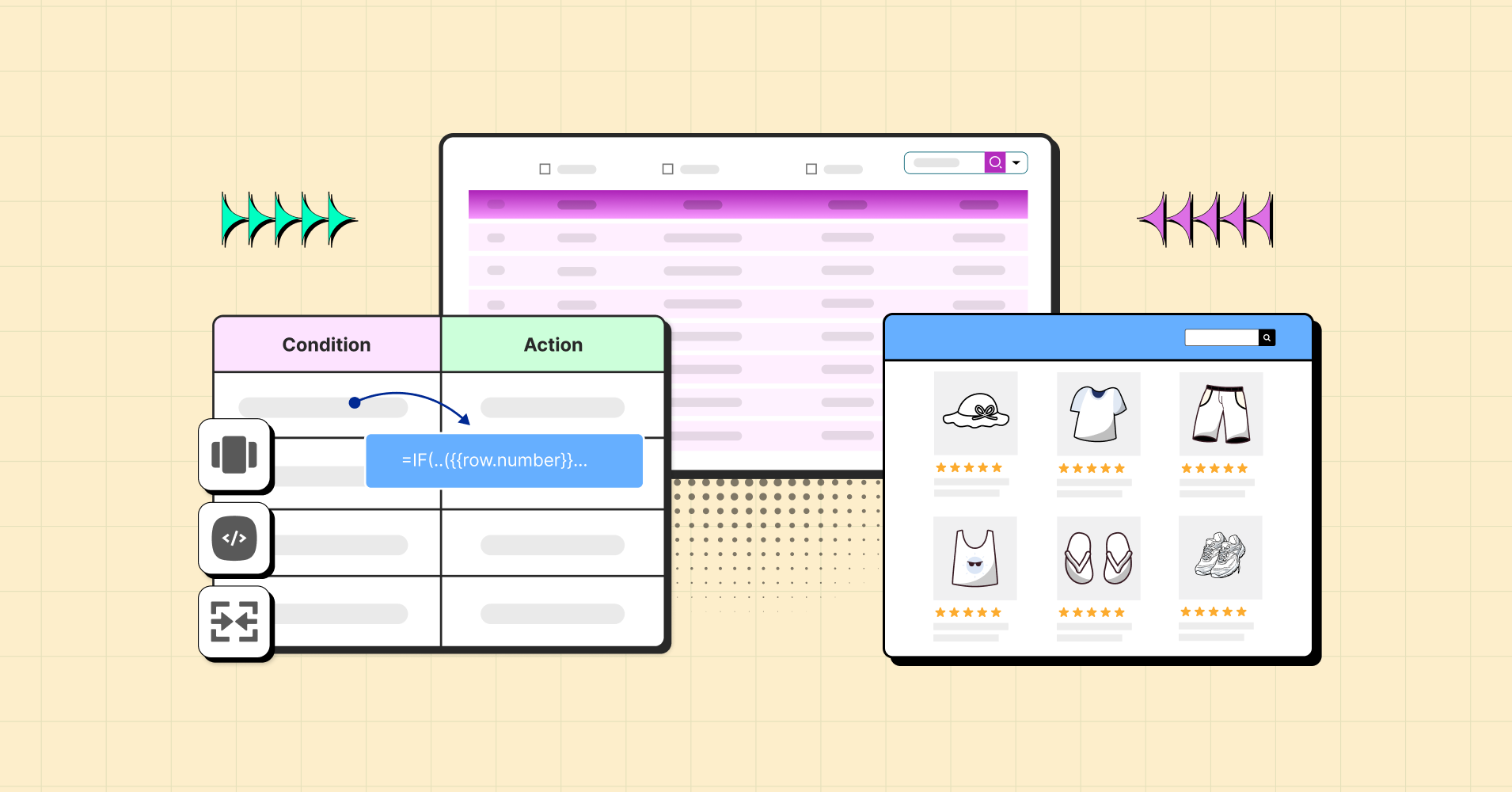
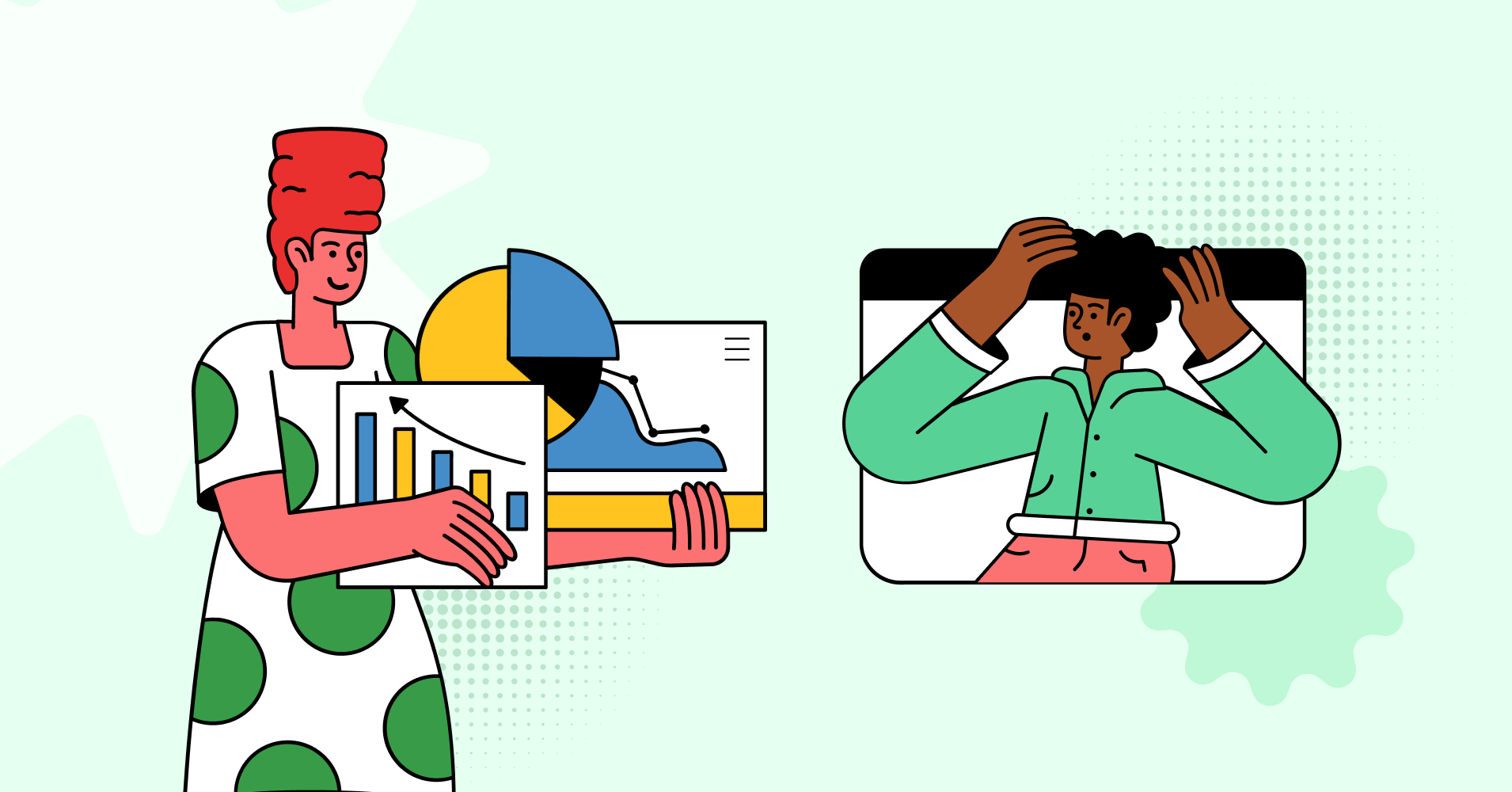
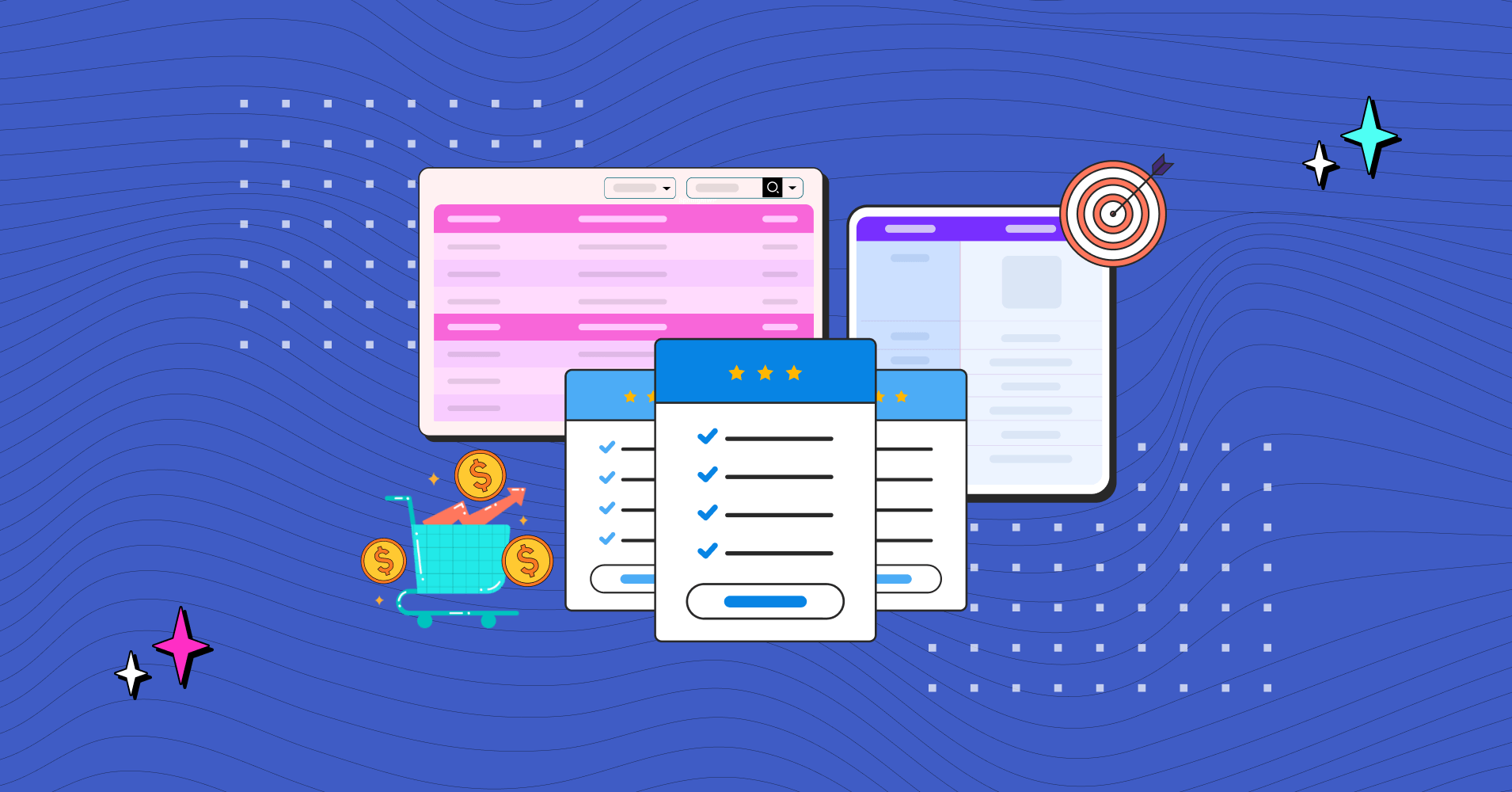
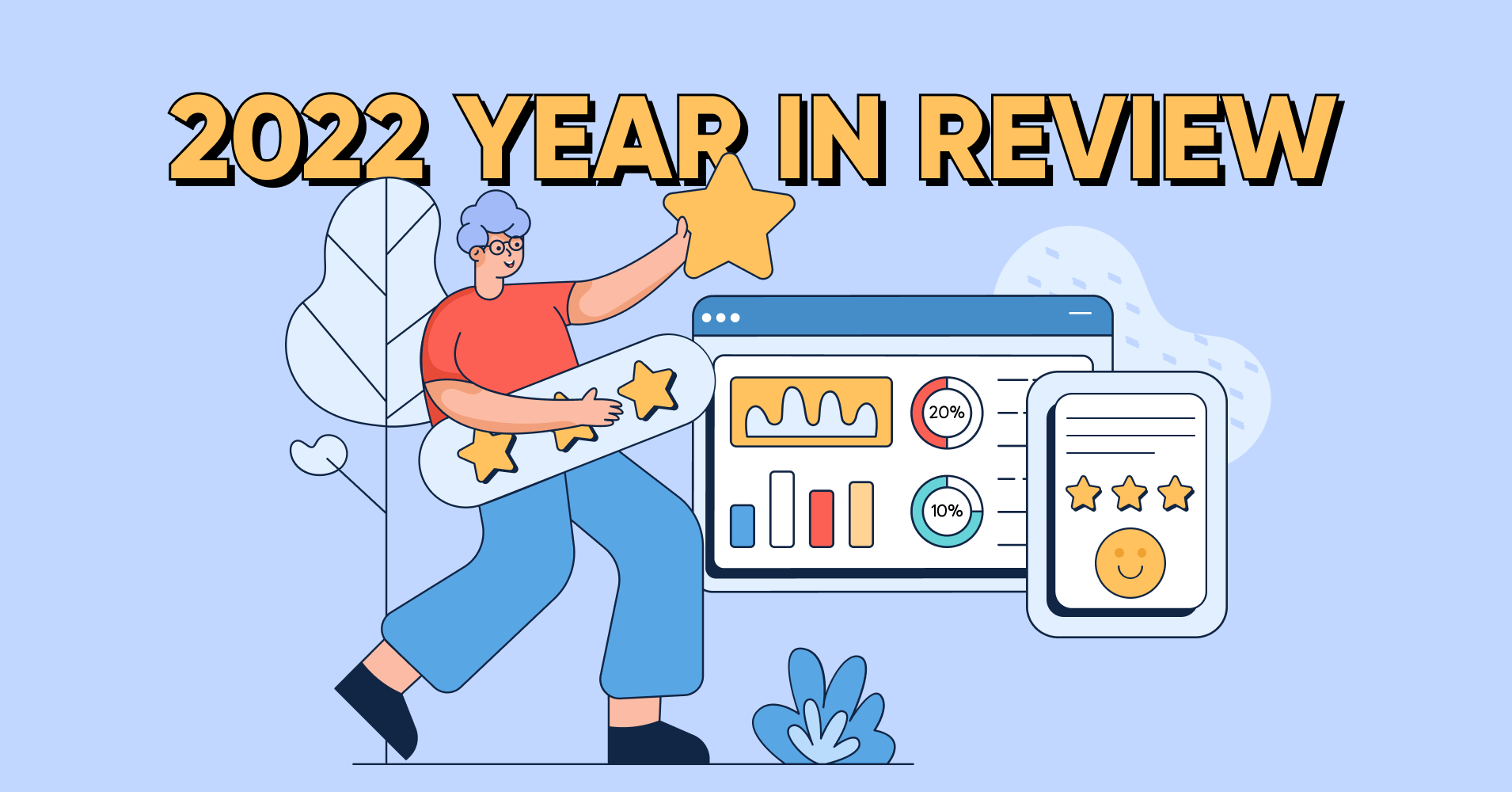
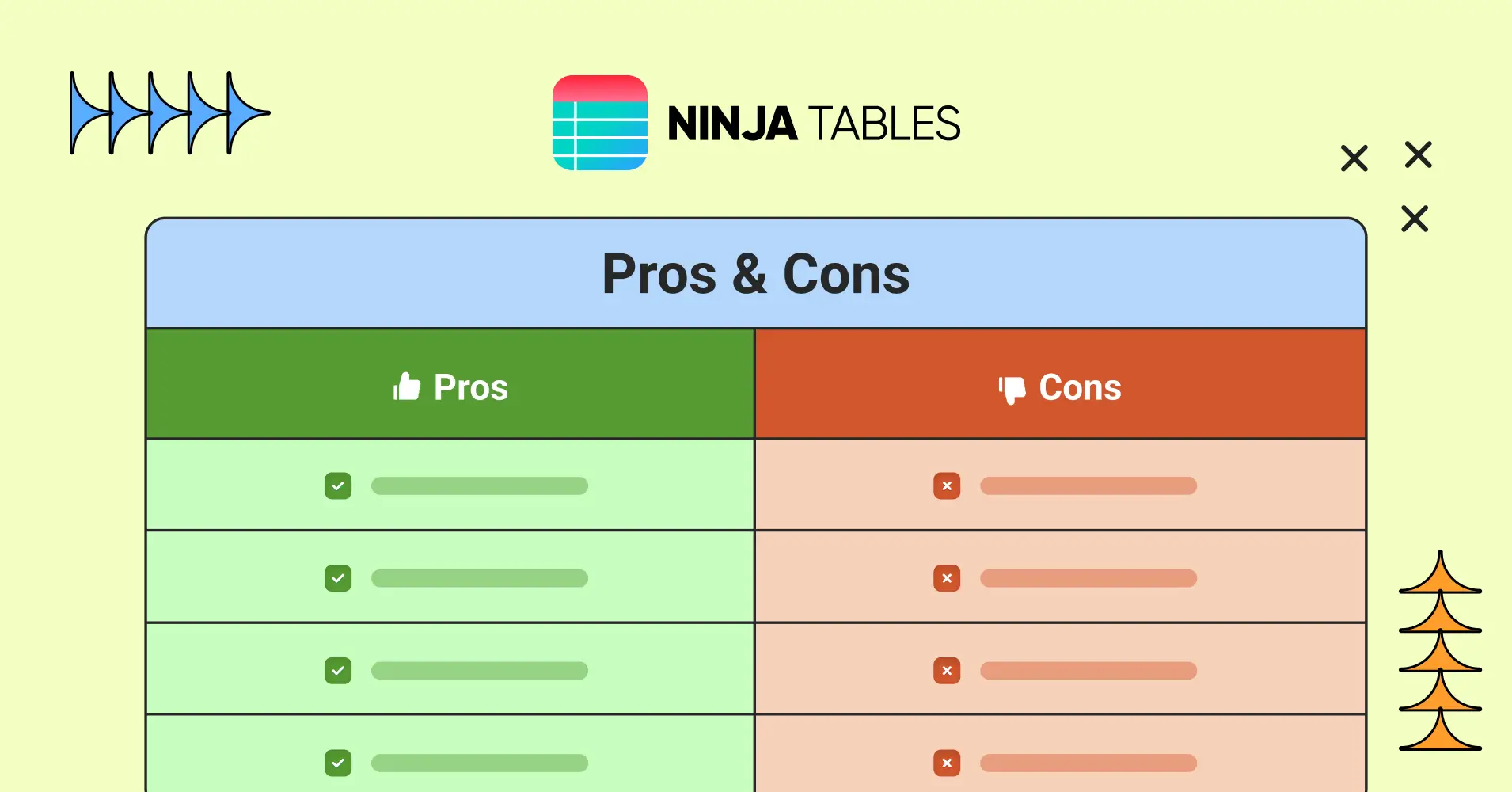
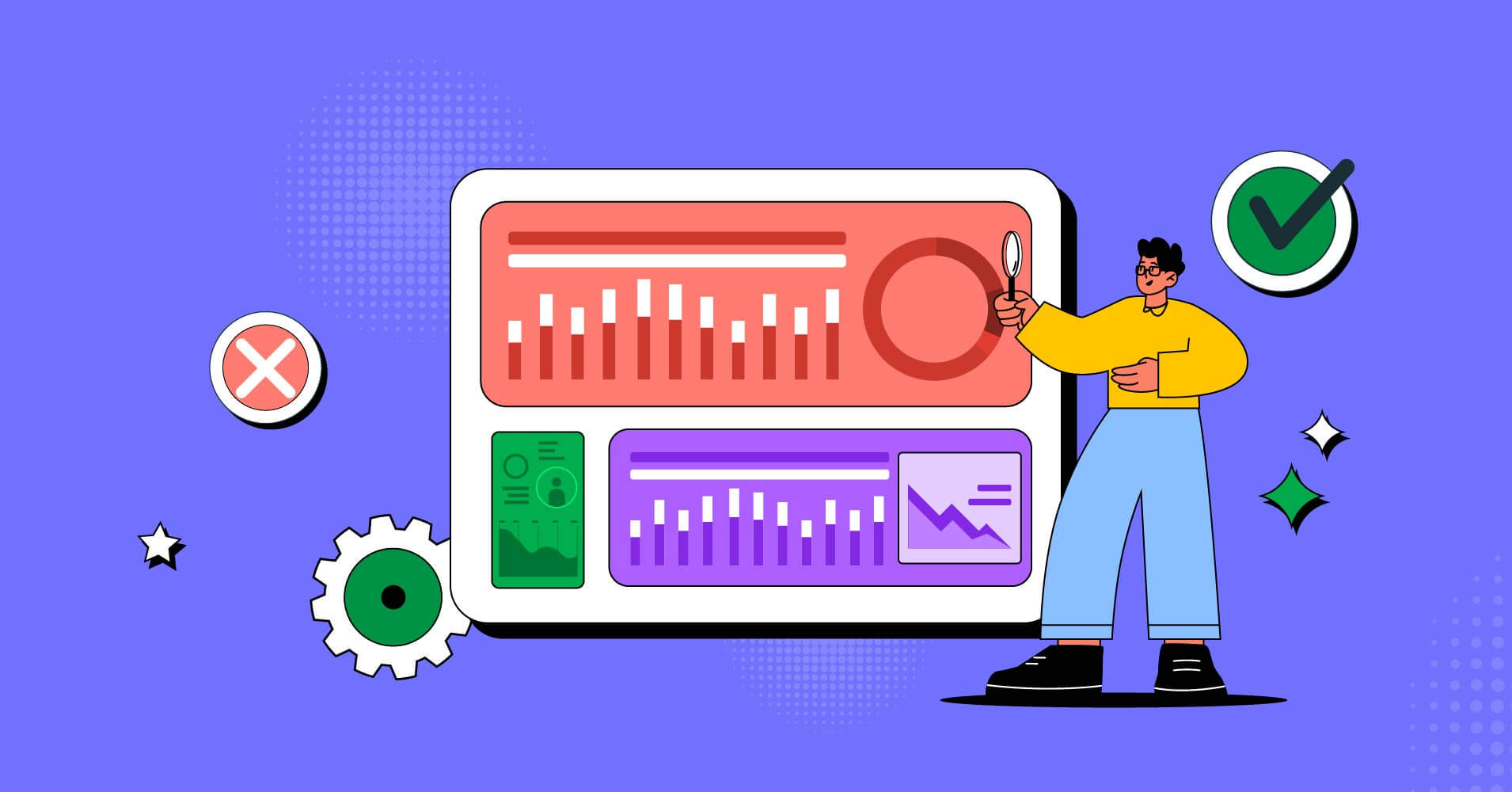
Add your first comment to this post